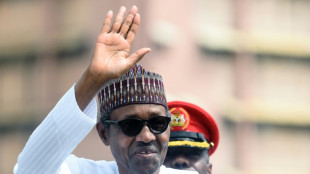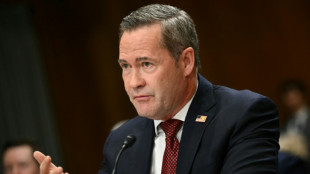

US consumer inflation accelerates as tariff effects creep in
US consumer inflation picked up in line with analyst expectations in June, government data showed Tuesday, with vehicle costs cooling over the month but increases seen in sectors exposed to President Donald Trump's widening slate of tariffs.
Observers anticipate they will learn more about the effects of Trump's duties over the summer months, meaning June's data marks the start in a series of closely-watched figures -- particularly as the central bank mulls changes to interest rates.
But Trump insisted in a Truth Social post after the figures were released that consumer prices were low, urging for interest rates to be cut: "Bring down the Fed Rate, NOW!!!"
The consumer price index (CPI) was up 2.7 percent from a year ago in June, climbing from 2.4 percent in May as energy costs rose, said the Department of Labor.
Excluding the volatile food and energy segments, "core" CPI picked up too to 2.9 percent from a year ago, and accelerated from 0.1 percent in May to 0.2 percent in June on a month-on-month basis.
In particular, household furnishings and apparel saw cost hikes, and both are segments that experts are eyeing as these are more exposed to tariffs.
The price increases in June signal that companies are beginning to pass on higher import costs to customers.
But the costs of new and used vehicles declined last month.
While Trump imposed a 10 percent tariff on almost all trading partners in April and separately slapped steeper duties on imports of steel, aluminum and autos, US officials have pushed back against warnings that these could spark price increases.
Economists caution that tariff hikes could fuel inflation and weigh on economic growth, but US Treasury Secretary Scott Bessent has labeled such expectations "tariff derangement syndrome."
Overall, CPI rose 0.3 percent in June from the previous month, an uptick from the 0.1 percent increase in May as well.
- 'Strikingly visible' -
"Tariff costs are strikingly visible in June's CPI data," said Pantheon Macroeconomics' chief US economist Samuel Tombs in a note.
"Prices rose especially sharply for goods which are primarily imported, and less quickly for those that are mainly made in the US," he added.
These include appliances, sports equipment and toys, although items like mobile phones were an outlier as they are exempt from Trump's "reciprocal" tariffs targeting nearly all trading partners.
Even if headline inflation shows no "meaningful" surge from tariffs alone, Nationwide economist Oren Klachkin warned it may be too soon to see their full impact just yet.
Businesses have been trying to hold off consumer price hikes through actions like eating into their own margins and trying to share costs with their suppliers, he told AFP.
But it remains to be seen how long they can do this. Klachkin said there could be a bigger impact over the summer.
Besides steep tariffs that have already taken effect, Trump has also threatened higher levels on dozens of key partners including the European Union, India and Japan.
Economists caution that consumer prices could rise further from these steeper duties, and because exemptions for goods like pharmaceuticals and semiconductors could eventually end.
Trump has opened doors to levies on such sector-specific imports, injecting more uncertainty into the global economy and worries of supply chain snags.
Underscoring these uncertainties, Bessent said in a Bloomberg Television interview Tuesday that he tells markets not to worry about the August deadline when higher tariffs on Chinese goods are set to kick in.
Analysts and Federal Reserve policymakers are monitoring if Trump's tariffs will trigger a one-off price hike or cause more persistent inflation.
This is despite Trump insisting Tuesday in a separate post that the Fed "should cut Rates by 3 Points."
"Rising prices will make it harder for the Federal Reserve to cut interest rates and tougher for families living paycheck to paycheck," said Heather Long, chief economist at the Navy Federal Credit Union.
Ryan Sweet, chief US economist at Oxford Economics, added that Trump's latest tariff threats, if put in place, will take time to feed into inflation too.
This "will keep the Fed on the sideline unless the labor market takes a sudden turn for the worse," he said.
S.Monti--GdR



